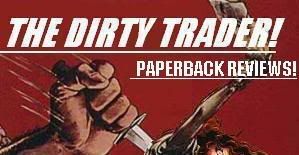

Once DC Comics set into a comfortable, family friendly rut in the 1950s, they had to start telling "Imaginary Stories" that allowed changes to occur with their characters, even though they were all done-in-ones with no impact on "reality." Marvel did something similar with "What If...?" except those were tales spun off a set point in continuity, typically a worst possible case scenario where heroes failed instead of triumphed. Meanwhile, DC started rebooting its official continuity every five years, so when they started doing "Elseworlds" one-shots, they were more like quaint throwbacks than daring flight of fancy. Marvel never really bought into reboots, but once they broke the cardinal rule of "nobody stays dead but Bucky and Uncle Ben," nothing seems to matter or feel irreversible in their universe anymore. They have whole sublines of "Elseworlds" type stuff, rather cheesy "imaginary stories" like "what if a given Marvel hero and their supporting cast operated out of a Depression era crime setting?" Some characters lend themselves to that sort of thing, and some characters are Deadpool.
Luke Cage was supposed to be a very hip cat when he was created in the 1970s, but his whole reheated Shaft shtick was heavily indebted to gumshoes from decades prior. Telling a legitimate 1930s noir story with the character, along the lines of the work of authors like Chester Himes or Walter Mosley, is actually pretty inspired. The solicited covers for the four issue mini-series were fucking gorgeous, and Shawn Martinborough drew the hell out of the interiors. The colors by Nick Filardi complemented well, and Dennis Calero offered a potent cover for the trade collection.
Things fall apart from there, though. The trade is in a dinky digest format, which at three-quarters standard dimensions is too big to fit in a pocket but too small to serve the art well. The pages are a slightly heavy but flat stock, so that regardless of the colors used, everything looks brown or gray. Ten buck for four issues sounds fair in a standard format trade with decent quality printing, so Marvel charges $14.99 and cuts every corner they can. It would have been deeply offensive if the story had lived up to the efforts of all the other creators.
Adam Glass and Mike Benson are probably best known (as much as they are) for writing Deadpool comics, and while the story is much better than that resume would indicate, competency doesn't warrant applause. Aside from featuring a lot of black people, the story is strictly post-Chinatown boilerplate. Luke Cage as presented here is a generic amateur dick without any personality or swagger. Willis Stryker and Billy Bob Rackham are so far removed from who they were in old Hero for Hire comics, it seems like the script came first and determining analogues happened on the assistant editor's office. The Spider-Man villain Tombstone, a perfect potential foil for Cage, gets his resemblance in this story from the colorist leaving him white rather than anything out of the script. There are two major "twists" in the story, one of which relies upon prior knowledge of the character. This negates the argument that the story was meant to stand on its own, but more importantly, the entire plot is built around teasing the twists and ladling out cliche in every other aspect of the story.
I read this book months ago, and kept putting off reviewing it. The story isn't outright bad, just pedestrian, failing to live up to the potential the concept suggests. It didn't have to be great, but it did need more than just being "there." The old "Elseworlds" were fun because they kept the basics of the characters with a simple but effective shift in perspective, while "Imaginary Stories" tended to be bizarre and "What Ifs" were often pure schadenfreude. This was simply a faceless screenplay for a late '70s b-movie with some Marvel trademarks grafted on.


No comments:
Post a Comment